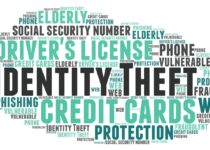Financing a Home with Poor Credit

“This post may contain affiliate links. If you use these links to buy something we may earn a commission but you may gain some knowledge.”
Before you start shopping for a home, you first need to secure financing. Financing a home with poor credit is no easy task. Not all banks and loan officers are created equal. Finding a bank and loan officer that will work with you if you don’t have the greatest credit is not common but should be your goal.
The mortgage industry is so regulated these days that there is very little that can be done but there are still a few options out there that a good loan officer can use to help get you financed for a home. If they can’t get you financed right away a good lender should explain to you what you need to do in order to get to where you need to be.
Your best starting place is the bank that you have your checking account at. If you have been banking with them for a while, they will know your history and be more willing to work with you. In the instance that you don’t have a checking account, it would be a good idea to establish one if you are going to be in the market for a home.
If the bank where you are established is unwilling to work with you or educate you on what your next steps should be in order to get financed, the first thing you should do is think about getting another bank, and the second is start shopping around. There are many different options these days with online brokerages and mortgage companies.
It is probably not going to be the easiest road for you but don’t give up, the dream of owning your own home can be yours if you are willing to put the work in. The government has created several different loan programs out there for first time home buyers and people with not so great credit.
FHA program
The Federal Housing Administration (FHA) falls under the Housing and Urban Development (HUD) is a program backed by the government and thus provides a great opportunity for someone who is financing a home with poor credit. The FHA loan program is one of the most utilized programs for first time home buyers because of the low 3% down payment and is friendly to low credit scores.
With the FHA loan program, you can have a credit score as low as 500, but several other requirements must be met in order to qualify with this low of a score. Your lender will most likely be looking for a score of 580 or higher. The FHA loan program will allow you to accept gift funds from family members to help with the down payment and closing costs as well. You are able to have the sellers pay for up to 6% of your closing costs as well, of course if they agree to it.
One of the downsides of the FHA program is Mortgage Insurance (MI) but this is common with any loan that doesn’t require a 20% down payment. Mortgage insurance is an insurance the mortgage company take out on your loan in case you don’t pay the mortgage back.
FHA used to drop MI once you had paid off 20% of your loan but now they require you to refinance into another loan to drop it. This will be an added monthly expense you will need to take into consideration for your budget.
VA program
If you have served in the armed forces a Veterans Administration (VA) loan is a great option for you. The VA loan program allows you to finance up to 100 percent of your loan and doesn’t require MI. You will pay a one-time financing charge at closing and that is it.
With this loan, the VA backs the loan in case of default. The program allows seller concessions of up to four percent and there are required inspections on the property that have to pass certain guidelines in order for the VA to close the loan. You will need to ask your lender or realtor about these inspections.
The minimum credit score for a VA loan is quite a bit higher than that of the FHA program, sitting around 580 as of this publication.
USDA
The United State Department of Agriculture (USDA) is mostly designed to help and encourage people to live in rural areas. There are certain guidelines the property must meet in order to qualify but you might be surprised at the types of properties in cities that qualify so don’t rule it out as an option.
The USDA loan program allows for 100% financing and the best part is that if your purchase amount on the home is $50,000 and it appraises for $53,000 and you qualify for the $53,000, you can use that extra $3,000 to use towards your closing costs.
The program also allows for a 6% sellers concession if you can negotiate that into your purchase contract. The minimum credit score to qualify for a USDA loan as of this publication is 640.
Fannie Mae or Freddie Mac
Fannie Mae and Freddie Mac are your two most typical secondary market banks. They have several different loan programs you can qualify for ranging from putting 3-99% down.
If you are only putting down 3-5 percent on the loan you can get a seller’s concession of up to 3 percent toward closing cost. If you are putting down more than 5 percent they will allow for up to a 6 percent sellers concession.
In these programs, if you are putting down less than 20 percent you are going to get hit with the MI payment again. The current required credit score for these programs is 620 as of this publication.
Non-Qualified Mortgages
Non-Qualified (Non-QM) Mortgages are mortgages that a bank underwrites and don’t sell on the secondary market. When they don’t sell them on the secondary market, they are able to make their own rules, like requiring lower credit scores.
This allows for banks to grant loans to borrowers with credit scores between 500-580, but most commonly like with an FHA loan, they will mostly likely be looking for a FICO score of 580 or higher.
You will have to ask individual banks about these programs and they should be used as a short-term solution. You are most likely going to be looking at a very high and adjustable mortgage rate.
Check Your Credit Score
Check your credit score to get an idea of what kind of rates you can anticipate. In the event that you have a score of 600 or lower, a down payment between 5 and 20 percent will usually be required. It would be a good idea to see if there are any ways that you can quickly improve your credit score.
Increase Your Down Payment
The bigger the down payment you make, the better terms you can negotiate, including your interest rate with a poor credit score. The biggest advantage to putting more down, other than a lower payment, is getting rid of MI which costs most borrowers hundreds per month.
Think about Financing
Think about your financing before you need a house. Review your credit score and start taking the steps to get your credit score up before you need it.
Not all banks are created equal, different banks have different capabilities and charge you different fees. When shopping rates, be sure to take this into consideration before making your decision.
With the creation of online home loan sites, it has become easier to compare rates and fees quickly and easily side by side but don’t count out your local bank. There is much to be said about dealing with a person that can help you through the lending process, especially when things don’t go as planned with your home purchase.
Pre-Qualify
At the very minimum get pre-qualified for a loan before you start house shopping. If you can get pre-approved, that is even better. In a highly competitive seller’s market, when you get into multiple offer situations, some sellers may require you submit a pre-approval letter with your offer to weed out potential contracts.
If you do not already have financing in place, it could cost you your dream home. Getting pre-qualified will for sure let you know exactly what price range you should be shopping in instead of guessing and wasting time.
Know Your Terms
Once you have located a lender and have received a financing offer, get a copy of the terms and review them carefully. Make sure they are what was agreed to and nothing is included that you were unaware of such as undisclosed fees or penalties.
A few examples may be early repayment penalties or closing fees that were not discussed. Remember that everything is negotiable, especially with good credit. If you have a poor credit score, expect to pay higher than usual fees, it is just how it is but it should be incentive to get your score up.
Let’s Review
Having bad credit when buying a home definitely makes things harder, but it’s not impossible. As we have seen there are several different loan programs out there that are available to you. You could get an FHA loan, VA loan, provided you served in the military, USDA loans, and Non-Qualified mortgages.
The important thing to remember is that if one lender says no, don’t let that discourage you and keep moving forward. If it is something that you really want, you will find a way to make it happen. It may take some time, but the dream of home ownership is attainable by anyone, most just need the education to learn how.




